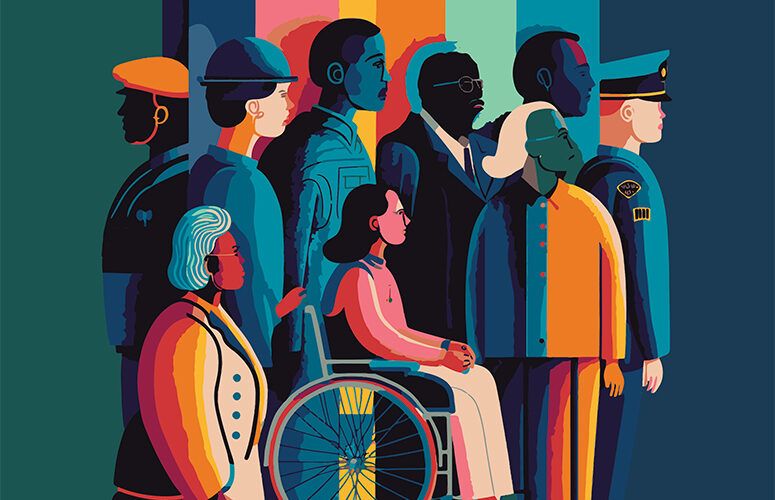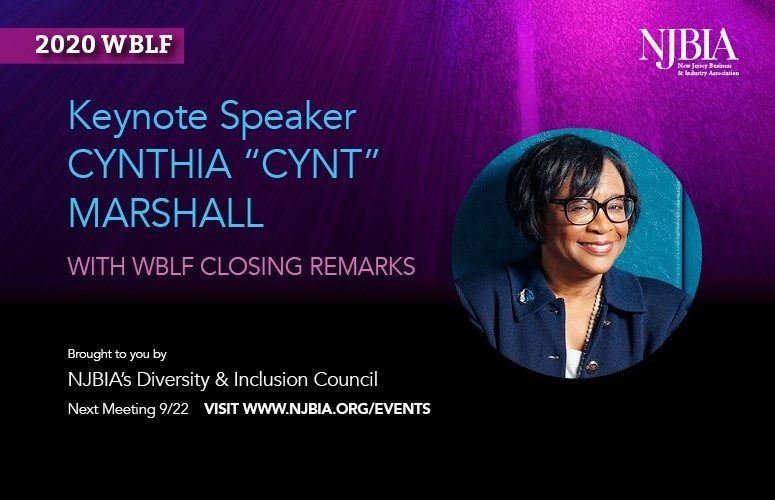
DEI Initiatives Are Important Priorities for Companies Today
Discover how the three entities below have successfully implemented diversity, equity & inclusion efforts and what it means for their employees and future workforce.
By Anthony Vecchione, Contributing Writer On Apr 4, 2023New Jersey businesses and institutions of higher education are committed to a culture of diversity, equity and inclusion (DEI).
For example, Citizens Bank is devoted to creating a DEI culture that is woven into the very fabric of the company, according to Mike Sebring, senior vice president, head of DEI.
“It extends beyond our walls to encompass all the ways we serve our colleagues, customers and the communities where we live and work,” Sebring says. “We understand that this commitment makes us stronger in every aspect, enabling us to do even more to address critical economic needs and build stronger communities. By working toward a world where everyone is seen, heard and respected, we are helping those we serve be ready for the best possible tomorrow.”
Over the last year, Citizens has focused on: driving an inclusive culture, upskilling in-demand capabilities for diverse talent, driving accountability against its diversity targets, educating employees on how to effectively combat bias, creating an environment of psychological safety, and creating a greater sense of belonging. All of this has embedded DEI deeper into its business.
Meanwhile, at PSEG, an environment of diversity, inclusion and belonging has strengthened the energy company’s workforce while driving its ability to serve customers while achieving operational excellence.
“Beyond that, we also recognize that our current and future workforce wants to work for an organization that shares their own values, is purpose-led, and recognizes the importance of equity,” says Shelia Rostiac, senior vice president human resources, chief human resources officer, and chief diversity officer at PSEG.
As part of its cultural transformation, in 2020, the company developed and implemented a new diversity, equity & inclusion initiative – Inclusion for All – based on employee feedback and quantitative data.
To implement the initiative, PSEG focused development programs for its managers to emphasize the importance of DEI and how they can incorporate DEI and inclusive leadership in their day-to-day work.
PSEG also has 12 Employee Business Resource Groups (EBRGs) to: help build meaningful connections through community outreach and volunteerism, mentorship and professional development; elevate diverse perspectives; support key business goals and priorities; and create safe spaces for employees to learn from each other.
Along with EBRGs, local inclusion teams are responsible for driving culture change at the local level through diversity programs, engagement, recognition and volunteerism.
PSEG launched the Relevant Conversation Series, a virtual social issues forum designed to engage employees in guided, diversity-focused discussions. Topics have ranged from inclusivity and race to what it means to be an effective ally for the LGBTQ+ community.
In addition, the company reviews existing and new policies and programs to ensure that they promote its DEI goals.
According to Rostiac, to measure the effectiveness of DEI and workplace culture efforts, PSEG often solicits feedback from employees through focus groups, listening sessions and the annual employee experience survey.
“In our 2022 Employee Experience Survey, we saw improvements in many areas, including comfort speaking up, belonging, and manager relationship, with an overall engagement category score of 82%,” Rostiac says. The company’s external hiring for women has improved almost 5% in the past two years, and representation in the workforce for people of color has improved 1.5% in the same time period, and external hiring for people of color exceeded 40% in 2022, looking at both regular and temporary employees.
For Dale Caldwell, Ed.D., chair of the Fairleigh Dickinson University’s Diversity, Equity, Inclusion, and Accessibility (DEIA) Advisory Council, being empathetic to people’s differences is personal.
Caldwell’s father marched with Dr. Martin Luther King in the 1960s, in Boston, to support the integration of public schools.
“All people experience very insensitive things that may be offensive. These insensitive things can relate to special needs, disability, or race,” says Caldwell, who at the time of this interview was named president of Centenary University in Hackettstown, a post he will assume on July 1.
Caldwell, who runs the Rothman Institute of Entrepreneurship at FDU, was chosen to chair the first DEIA Advisory Council.
The group was charged with providing advice to senior leadership on issues around DEI, and to convene a group of people that had expertise and interest in this area.
“We accomplished that in our first year,” he says. “We put together a good plan and the university implemented that plan. However, at the same time, there was an opportunity for a grant from the state of New Jersey to implement some of these things.”
In 2021, the council put together a proposal and received a $1.2 million grant from the state.
Caldwell pointed out that the curriculum is evaluated so that it is sensitive to DEI concerns.
The Bottom Line
In addition to impacting a company’s corporate culture, and image, DEI initiatives can also affect a business or organization’s bottom line.
“By incorporating inclusiveness, you get more creativity,” Caldwell explains. “And when you get more creativity, you get a better curriculum. You have new ways to recruit students, which is a revenue source. Diversity has helped to bring in more revenue because our approach is more sensitive to more people.”
Positive Response
Overall, the feedback from employees, customers and business partners in response to DEI initiatives has been positive.
“Citizens is committed to listening and understanding the challenges and opportunities facing the New Jersey region,” Sebring says. “Internally, colleagues’ sense of belonging and being their authentic self is highly ranked on our annual engagement survey. As we adapt the organization to new priorities, such as expanding our reach to new geographies, we do so by thoughtfully allocating financial and talent resources to position the company for future success.”
Rostiac comments, “The most meaningful feedback we have heard from employees is that they see the company’s commitment to DEI and they know the company is fully invested in the long-term. We’ve also heard from employees that this work is having a positive impact on employees’ day-to-day experiences and that was the overall goal of the Inclusion for All program.”
“The training has really been impactful,” Caldwell says. “The idea is that diversity is really everything, and that we are all products of our influences. Once you understand that, it’s much easier to accept people who are different.”
Lessons Learned
“We’ve learned that we really need to listen to the workforce,” Rostiac says. “Many of our initiatives are based on feedback from listening sessions with employees. Our workforce made it clear that recognition and reward are a priority for them, so we are exploring new recognition programs. We want to build a DEI program that resonates with our entire workforce so that all employees can connect in some way to the work.”
To access more business news, visit NJB News Now.






